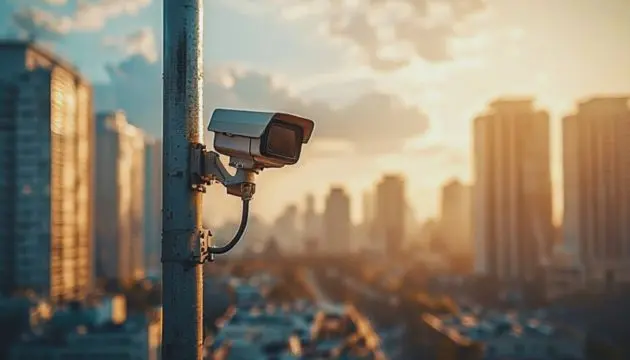PESHAWAR: Two months after launching the Peshawar Safe City Project, the Khyber Pakhtunkhwa (KP) police have signed an agreement with the National Radio Telecommunication Corporation (NRTC) to expand the project to Dera Ismail Khan, Bannu, and Lakki Marwat districts.
According to the report, the agreement was signed during a special ceremony by Safe City Project Director and DIG (IT) Rai Ijaz Ahmad and NRTC General Manager (Commercial) Syed Amir Javed.
Inspector General of Police (IGP) Zulfiqar Hameed said funds have been released to NRTC for the southern region’s Safe City Project, which will be completed within six months. He called it a major step toward restoring peace in the area.
The IGP said the project will help in fighting terrorism and controlling street crimes by using high-resolution cameras. “It is an important move toward digital policing, identifying criminals, and accessing their records,” he added.
According to a police statement, a survey was conducted in all three districts before the agreement. It found 86 locations for over 400 cameras in Dera Ismail Khan, 69 sites for over 300 cameras in Bannu, and 41 sites for more than 250 cameras in Lakki Marwat. Officials said the project will improve the overall security situation in these areas.
— ALSO READ —
KP Police to deploy thermal drones and armoured vehicles for enhanced Muharram security
Earlier, on April 13, the KP government and NRTC signed a Rs2.2 billion agreement to implement the Peshawar Safe City Project. The agreement was signed at the Chief Minister’s House.
DIG Ijaz Ahmad said that under this project, 710 modern CCTV cameras would be installed across Peshawar. He said the system is not just for video monitoring but is powered by artificial intelligence (AI), capable of identifying criminals and suspicious vehicles by connecting with police records.
“If a vehicle is flagged by the system, emergency police teams will be alerted immediately,” he explained.
He also said the system will be linked with the CCTV network of the Peshawar Bus Rapid Transit (BRT) and other commercial areas to improve overall surveillance.














